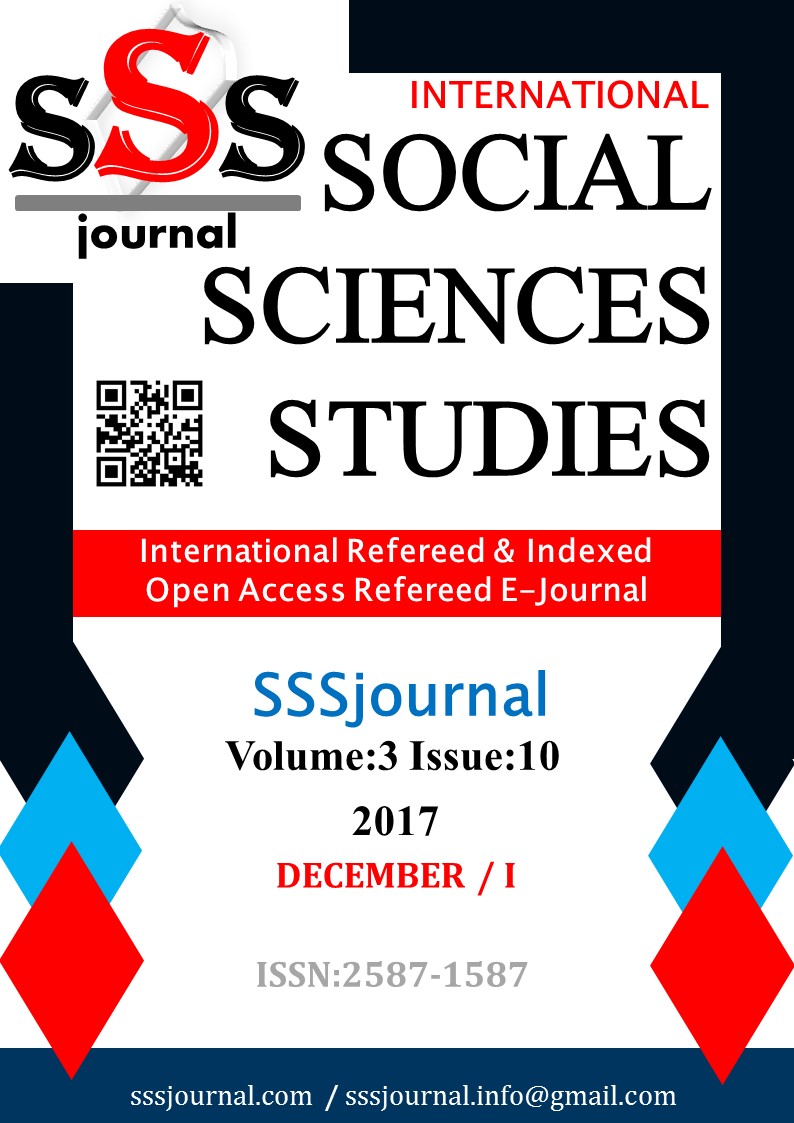Author :
Abstract
Okuma becerisi insan hayatında olması gereken önemli bir beceridir. Akademik başarı ile birlikte, bireyin kişisel gelişimi ve ekonomik bağımsızlığını kazanması açısından gereklidir. Araştırmacılar kazanılan okuma becerisinin, ilkokul yıllarında edinilen en değerli eğitsel çıktı olduğunu belirtmişlerdir. Okuma öğretim sürecinde özellikle ilkokul birinci, ikinci ve üçüncü sınıf öğretmenlerine büyük bir görev düşer. Çünkü bu sınıflarda eğitimin amacı okumayı öğretmek ve geliştirmek iken, ileriki yıllarda öğrenmek için okumaya başlanır. Tüm eğitsel etkinliklerde olduğu gibi, ilkokul öğretmenlerinin okumaya yönelik teorik alt yapısı, onların okuma etkinliklerinde etkili olmaktadır. Bu çalışmanın amacı ilkokul öğretmenlerinin okuma öğretimine yönelik alt yapısının analiz edilmesidir. Bu amaçla Aksaray İli merkez ilçesinde yer alan elli öğretmen çalışmaya dahil edilmiştir. Veri toplama aracı olarak İlkokul Okuma Öğretimi Anketi uygulanmıştır. Sonuçlar ilkokul öğretmenlerinin okuma öğretimine yönelik ilgili olabilecek bütün konularda olumlu bir düşünceye sahip olduğunu göstermiştir. Bu olumlu görüş çocuğun yeni kelimeleri okumadan önce bu kelimelerin çocuğa gösterilmesi konusunda daha düşük iken, bilinmeyen bir kelime ile karşılaşıldığında çocuğa önce ipuçlarının verilmesi konusunda daha yüksektir.
Keywords
Abstract
Reading is the vital prerequisite for school achievement and for eventual personal and economic success. It is necessary to acquire strong literacy skills to live a productive life. Reading does not constitute a skill that occurs naturally in an individual. Teachers teaching at all levels of the school system know that reading is important. . In recent years, research concerning the relationship between teachers’ beliefs and instructional practices is drawing increased attention. The purpose of this study was to examine the primary school teachers’ beliefs reflecting their theoretical background regarding to teaching reading. Data were collected using Primary School Teaching Reading Survey. Fifty primary school teacher involved in the study. Results indicate that primary school teachers have a positive background for all items of the teaching reading. Among these items, teachers reported the less positive belief for introducing new words before the children meets with them and the most positive belief was the giving clues to the children when they meet with the unfamiliar words.
Keywords
- Akyol, H. (2005). Türkçe ilk okuma yazma öğretimi. Ankara: Gündüz Eğitim ve Yayıncılık.
- Akyol, H. (2005). Türkçe ilk okuma yazma öğretimi. Ankara: Gündüz Eğitim ve Yayıncılık.
- Anderson, R. (1994). Role of the reader’s schema in comprehension, learning, and memory. R.B.Ruddell, M.R. Ruddell, H. Singer (Eds.), Theoretical Models and Processes of Reading (fourth ed.), IRA:Newark.
- Armstead-Flowers, Tiffany Armstead (2015). Investigating teachers' beliefs about and self-reportedpractices in early literacy teaching. Unpublished Doctorate thesis, University of Iowa, 2015. http://ir.uiowa.edu/etd/1534.
- Boonteerarak, P. (2014). Exploring Thai teachers’ conceptual beliefs about reading and theirinfluences on instructional practices. Unpublished doctorate thesis, Northern Illinois University.
- Clark, C. M., & Peterson, P. L. (1986). Teachers' thought processes. In M. C. Wittrock,(Ed.),Handbook of research on teaching (3rd ed.) (pp. 255–296). New York: MacMillan Publishing Company.
- DeFord D.E. (1979).The DeFord Theoretical Orientation to Reading Profile (TORP). ERIC data base non-journal record type. https://eric.ed.gov/?id=ED236661
- Elliott-Johns, E.S. (2004). Theoretical Orientations to Reading and Instructional Practices of Eleven Grade Five Teachers. Doctorate thesis, McGill University.
- Gove, M. K. (1983). Clarifying teachers’ beliefs about reading. The Reading Teacher. 37 (3), 261- 268.
- Green R.L. (1995). A third-grade ‘Guarantee’ to ensure success, make sure all students can read proficiently before they leave third grade. American School Board Journal. 8:30-31.
- Isenberg, N. (1990). Literacy competence: the EFL reader and the role of the teacher. ELT Journal, 44(3).
- Karasar N (2005). Bilimsel araştırma yöntemi: Kavramlar ilkeler teknikler, (15.Baskı). Ankara: Nobel Yayınları.
- Luciano, J. A. (1997). An Examination of the Relationship Between First Grade Teachers’Theoretical Orientations Toward Reading Instruction and Their Classroom Instructional Practices. Doctoral Dissertation, University of North Florida, Jacksonville, FL.
- Mastrini-McAteer, M. L. (1997). Teacher beliefs and practices as they relate to reading instructionand student achievement. Dissertation Abstracts International, 58(12), 4601A. (UMI No. 9817730)
- Mgqwashu E.M. and Makhathini B. (2017). Transforming primary school teachers’ perceptions ofthe ‘place’ of teaching reading the role of reading to learn methodology. Independent J. Teach. Learn.12(1):30-50.
- Nargül E (2006). Alan dışından atanan sınıf öğretmenlerinin ilkokuma yazma öğretimindekiyeterlilikleri ve karşılaştıkları sorunlar. Yayımlanmamış yüksek lisans tezi, Sakarya Üniversitesi Sosyal Bilimler Enstitüsü, Sakarya.
- Olson, J., & Singer, M. (1994). Examining teacher beliefs, reflective change, and the teaching of reading. Reading Research and Instruction. 34(2), 97-110.
- Vaughn M, Parsons SA, Gallagher MA, Branen J (2015). Teachers’ adaptive instruction supporting students’ literacy learning. Reading Teacher International Literacy Association. 69(5):539-547.





